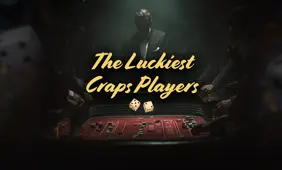The Complicated Reality of Gambling in Video Games – How Modern Play Mimics Real Gambling: Part 2

Last week, in the first part of this series, we traced how games went from pinball panics to casino-style minigames without raising more than an eyebrow. But the conversation shifts once the stakes involve real-money ecosystems, global storefront rules and the power imbalance between indie creators and billion-dollar publishers. That tension becomes impossible to ignore when we move into the modern era, where the biggest games in the world simulate casinos outright and somehow attract far less scrutiny than the small titles caught in the crossfire.
The Grey Zone: Grand Theft Auto, Red Dead, and Digital Casinos
If Luck Be A Landlord is being punished for looking like a slot machine, it’s worth asking why far more literal gambling simulators, embedded in the biggest games in the world, often get a free pass. Take Grand Theft Auto Online, which in 2019 introduced the Diamond Casino & Resort, a full-blown, lavishly rendered in-game casino where players can purchase chips with real money to spin roulette wheels, play slot machines, or go all-in on blackjack. While these chips cannot be cashed out for real-world currency, the transaction loop – real money in, virtual gambling out – feels strangely close to actual gambling mechanics.
What’s more, these mechanics exist within a game already notorious for its violent, sexual and morally grey sandbox, further muddying the ethical waters. Critics were quick to point out that GTA’s casino update blurred the lines between gameplay and gambling, especially for younger players. And yet, while GTA Online still holds a “Mature” or “18+” rating in most territories, it was not delisted or heavily penalised. Is this all because its publisher, Rockstar Games (and parent company Take-Two), is simply too big to fail?
The same double standard applies to Red Dead Redemption 2, Rockstar’s cowboy epic, which includes a fully functional poker minigame – again, using in-game currency earned or bought with gamers’ real money. But here, the legality of the feature depends on where you live in the world. In some countries, players are locked out of poker entirely due to local gambling laws. In others, it's freely accessible. This patchwork approach reveals a core tension: the way that global ratings boards and regulators handle gambling themes is wildly inconsistent and dependent on the whims and discrepancies of local lawmakers.
Such regional discrepancies raise uncomfortable questions. Why is simulated poker deemed dangerous in some jurisdictions but harmless in others? Why is a small indie developer held to stricter disclosure standards than a multibillion-dollar publisher? And why do rating boards like PEGI or the ESRB often ignore the psychological similarities between digital casinos and their real-world counterparts, provided no explicit cash-out path exists?
In the case of Luck Be A Landlord, a game with no microtransactions and no way to wager or withdraw real money, the mere appearance of slot-machine mechanics triggered removal. Meanwhile, AAA titles continue to incorporate real-money chip purchases with minimal resistance. This isn’t just a regulatory grey zone; it’s a landscape defined by power, perception, and unequal scrutiny.
Loot Boxes, FIFA and the Legal Tangle of Monetised RNG
If there's one mechanic that epitomises the messy intersection of gaming and gambling, it’s the “loot box. These are digital containers players can buy – often with real money – that offer randomised in-game rewards: a new character, a rare weapon, or even just a different outfit (or, if you play Fortnite, “skin”). Unlike purely cosmetic microtransactions, where you know what you’re paying for, loot boxes rely on chance, making them what some regulators now describe as “monetised RNG” (random number generation), in other words: gambling by another name.
Nowhere is this clearer than in games like FIFA (now EA Sports FC), where “Ultimate Team” packs allow players to purchase mystery cards in hopes of unlocking top footballers to enhance their virtual squad. These packs are the backbone of FIFA’s business model, generating billions in revenue for publisher EA. The appeal is obvious: collect your favourite players, upgrade them with special “in-form” and “team of the season” editions when you can afford them, and build a dream team that will let you compete with the millions of kids using their parents’ credit cards to bankroll their teams. But the underlying mechanic – spending real money on unknown rewards – mirrors slot machines more closely than many would like to admit.
Unsurprisingly, this has triggered global scrutiny. In 2018, Belgium declared loot boxes illegal, forcing publishers like Blizzard and EA to remove or disable the feature in their local releases. The Netherlands followed with its own crackdown. In the UK, a 2020 Parliamentary inquiry concluded that loot boxes should be regulated under existing gambling laws, citing growing concerns about underage players and psychological harm. While the UK government stopped short of outright banning loot boxes in its 2023 White Paper, it did call for stronger industry self-regulation and transparency in that department, so time will tell how regulation on loot boxes continues to change in the UK.
Some publishers have responded by making changes of their own. Overwatch, once a poster child for loot box monetisation, has replaced its RNG mechanics with a more predictable “battle pass” system. EA now displays pack odds in FIFA, revealing the probability of pulling high-value cards. Others have doubled down, layering in premium currencies, dynamic pricing, and psychologically manipulative reward systems that are harder to untangle.
This makes the case of Luck Be A Landlord – a single-player game with no in-app purchases – all the more bewildering. It was removed from the Google Play Store because its slot machine imagery was deemed to “depict or simulate gambling”. No matter that the game doesn’t involve real money, nor that it offers no mechanism for addiction-fuelling purchases. It looked like gambling, and that was enough.
Meanwhile, the games most closely aligned with real-world gambling mechanics – because they encourage real spending on random outcomes – often sidestep classification as gambling thanks to legal loopholes, publisher influence, or ratings boards slow to adapt. There is no cash-out function, regulators argue, so technically it’s not gambling. But for players, particularly younger ones, the psychological experience is often indistinguishable.
It raises a provocative question: Is a cartoon slot machine more dangerous than a monetised loot box? If appearances alone can get a game banned, while practices that mimic gambling survive with minor tweaks, then perhaps the problem isn't just the presence of randomised mechanics, but who’s profiting from them.
When Play Looks Like Risk
When Luck Be A Landlord was delisted from the Google Play Store in January, its creator, indie developer TrampolineTales, was caught off guard. The game, a satirical roguelike that uses slot-machine mechanics to critique capitalism, contains no microtransactions, no real-money gambling, and no payout systems. Yet because the developer failed to tick a box disclosing "gambling themes" during the app submission process, the game was flagged and swiftly removed.
It wasn't alone. Around the same time, Balatro – another indie title with roguelike structure and poker-themed mechanics – was briefly pulled from console stores in several regions. While the game also steers clear of real-money gambling, its card-based aesthetic and use of poker rules triggered concern from platform holders. Both games were restored after some back-and-forth, but the incident underscored a broader and more troubling issue: indie games are increasingly at the mercy of opaque, overly cautious content moderation systems run by platform giants.
So, when does play cross into gambling? That’s the question still hanging in the air after Luck Be A Landlord’s temporary ban, after Balatro’s brief disappearance, after a decade of debates over loot boxes and “surprise mechanics”. And the truth is: no one seems to agree.
What we’re left with is a fragmented, often contradictory landscape. Some games allow real-money purchases that unlock randomised rewards, yet face little resistance. Others, like Luck Be A Landlord, use purely fictional currency, but get pulled for evoking the imagery of gambling too closely. It’s not the underlying mechanics being consistently policed, but the surface appearance. What’s banned is often what looks risky, not what is.
Beneath that inconsistency lies a deeper cultural unease. This isn’t just about regulation: it’s about discomfort. Discomfort with games that reflect our love of chance, our willingness to take risks, and our hunger for reward. We’re not necessarily scared of gambling itself. We’re uncomfortable when it appears outside the casino, repackaged in pixels, bright colours, or playful metaphors, especially when it’s coming from huge corporate publishers rather than small indie developers.
But as games continue to evolve – hybrids of play, commerce, story and systems – we need frameworks that understand context. Platforms and regulators alike must move beyond surface-level signifiers and instead ask: What is this game encouraging? How does it reward behaviour? Who is it targeting and – crucially – who profits?
Because in the end, the problem isn’t the slot machine. It’s the system that can’t tell the difference between satire and simulation, between critique and complicity, between fun and real harm. And if we’re not careful, we’ll keep punishing the wrong things, while the truly exploitative slip right through the cracks.





Review this Blog
Leave a Comment
User Comments
comments for The Complicated Reality of Gambling in Video Games – How Modern Play Mimics Real Gambling: Part 2